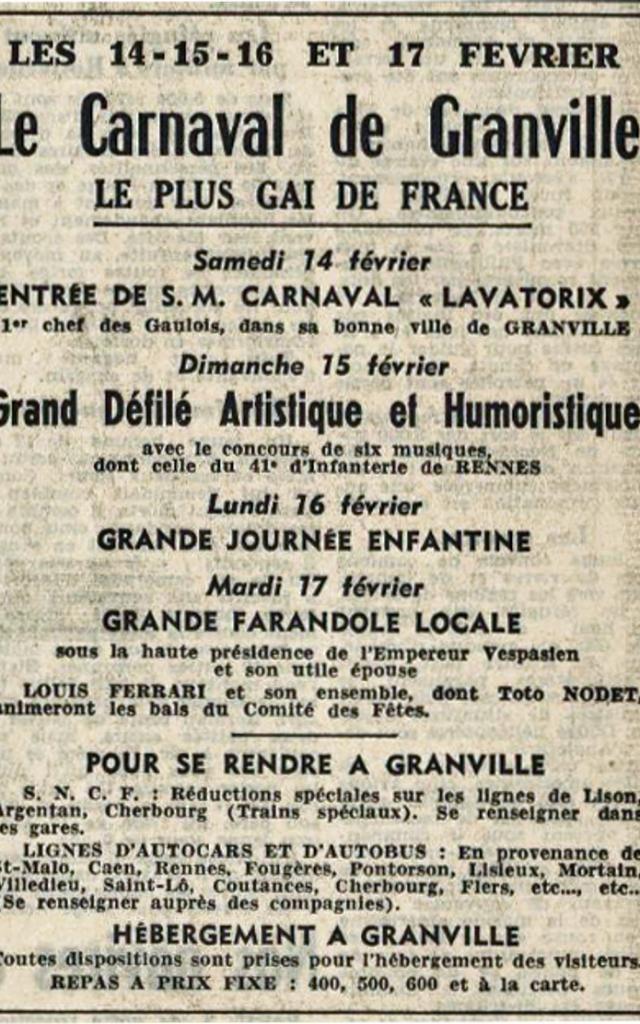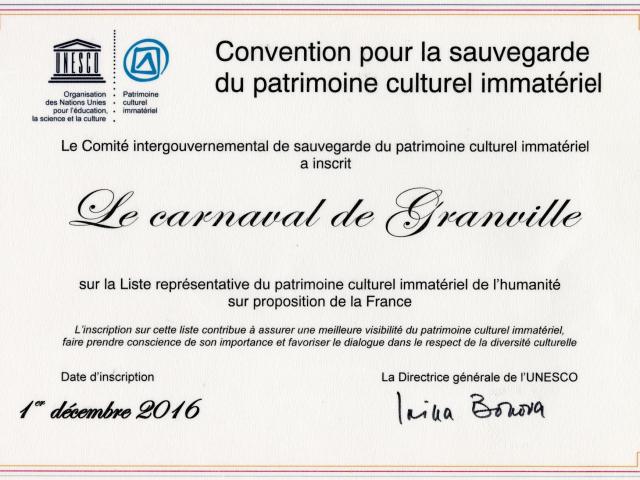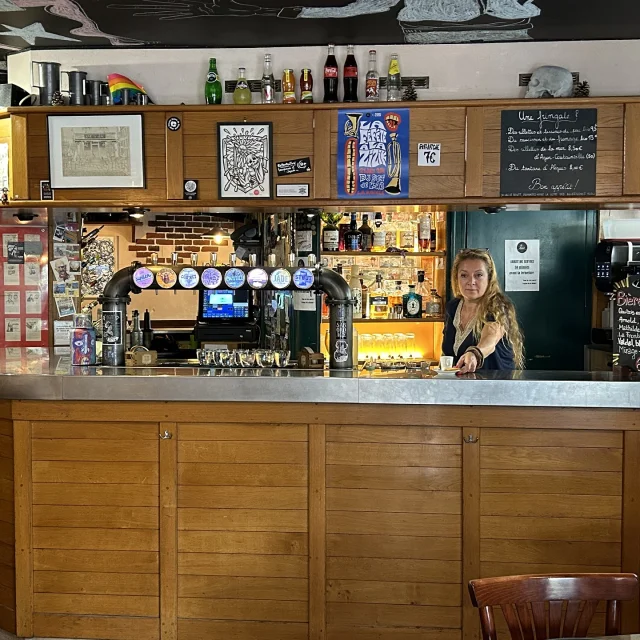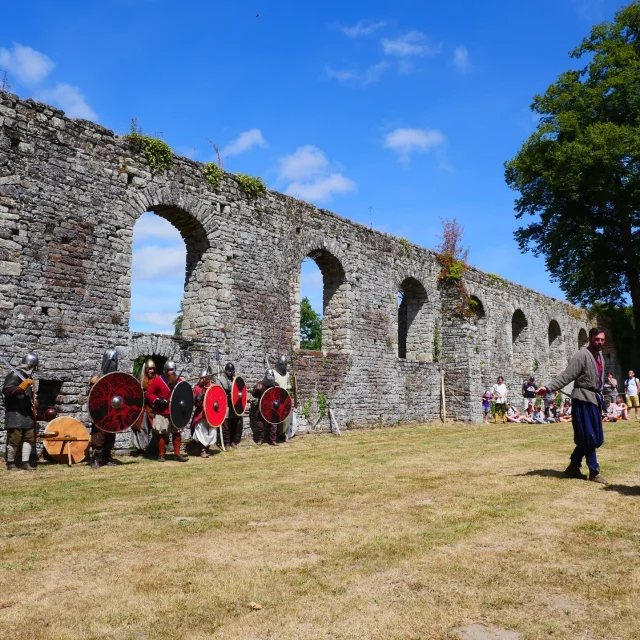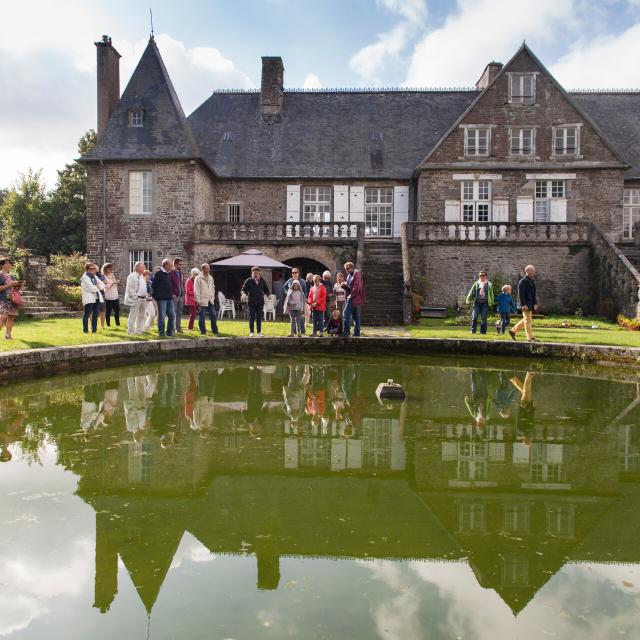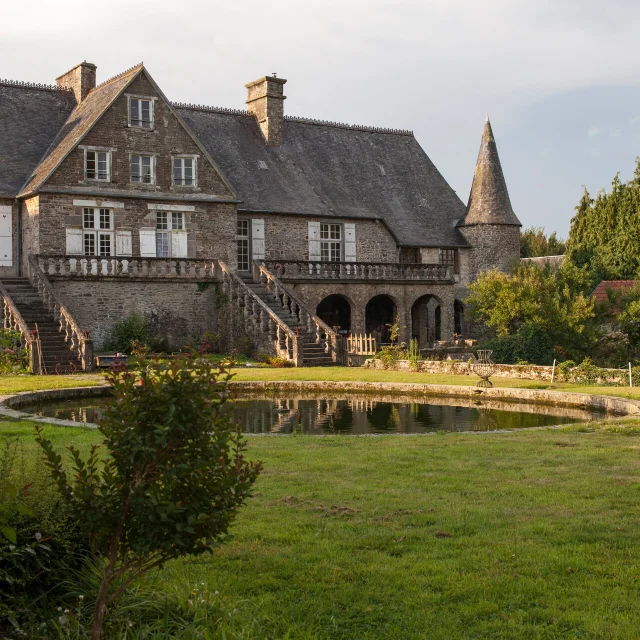Last party ashore
before setting sailThe history of the Granville Carnival is linked to the town’smaritime history, and more specifically to the history of cod fishing, which was the main activity of the port from thehistory of cod fishing, which was the port’s main activity from the 16th to the early 20th century. In 1872, a large-scale festival was organized in honor of the Terre-neuvas, the fishermen who spent long months each year, far from their families, fishing cod on the Grand Banks of Newfoundland, off the coast of Canada. These expeditions were long and sometimes perilous. At the time, Carnival was a time when all these seafarers and their loved ones prepared for the departure to the banks, by providing them with an opportunity to stock up on jollity and refrains. The Terre-neuvas departed around Mardi Gras. Carnival was their last celebration on land before setting sail.
 Departure for Newfoundland, leaving the port of Granville, photograph by Lucien Rudaux, circa 1910
Departure for Newfoundland, leaving the port of Granville, photograph by Lucien Rudaux, circa 1910 Haute Ville float - Carnaval 1903 - "Le Thar" float from the Haute Ville district
Haute Ville float - Carnaval 1903 - "Le Thar" float from the Haute Ville districtThe first carnival – with an organizing committee – took place on February 7, 1875. The carnival was also part of the tradition of charity festivities: among the floats in the cavalcade, a charity float collected funds to help the poorest of the poor. In fact, this tradition predates the creation of Carnaval as such, since as early as 1867, a large Mi-Carême cavalcade was organized in Granville for the benefit of the underprivileged. At the beginning of the 20th century, the program of carnival parades that we still know today was established. In 1902, neighborhood committees were created to better structure the parade, and in 1903, the organizing committee decided that the carnival parade would henceforth take place on Sundays. Float builders from Granville’s four neighborhoods (Haute-Ville, Rue Lecampion, Rue du Pont and Calvaire), individuals and bands taking part in the parade then passed through the whole town, including Haute-Ville.


